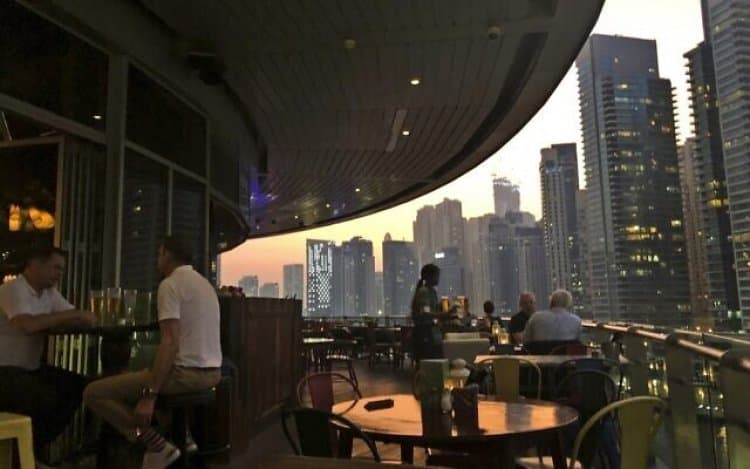
Relaxation of Alcohol Restrictions in the UAE
The United Arab Emirates (UAE) reduced alcohol prohibitions as part of a significant revamp of the country's Islamic personal rules. Prior to the amendments, anyone who consumed alcohol, or who possessed, acquired, imported, exported, or manufactured alcoholic drinks for private use or offers to 3rd parties without permission and in violation of the law was subject to six months in prison and a minimum fine of ten thousand Dirhams, or both. Similarly, anyone caught possessing, acquiring, bringing, manufacturing, re-exporting, promoting, or publicizing alcoholic beverages for commercial reasons without authorization and in breach of the law was subject to a minimum of two years in prison and a fine of 50,000 Dirhams, or either of these two penalties.
Alcohol restrictions are being eased as part of a broader revision of the country's Islamic personal rules. At the UAE, alcohol was lawful in bars and clubs, but purchasing, transporting, or possessing alcohol in one's house needed a government-issued license. Alcohol consumption is no longer considered a criminal offence under UAE Federal law, following recent amendments to the Federal Criminal Code (Federal Decree by Law No. 15 of 2020), provided that some requirements are satisfied, such as usage in authorized locations in compliance with existing legislation, taking into account local laws that every Emirate may release. New regulations in the United Arab Emirates have removed penalties for people aged 21 and up who consume, sell, or possess alcohol. The new judgment appears to allow Muslims who had previously been unable to obtain an alcohol license to consume alcoholic drinks.
As a result of Law No. 15 of 2020, Article 313 has undergone significant changes. In simpler terms, this amendment means that alcohol drinking is no longer regarded a criminal offence under UAE Federal law, provided that certain conditions are followed, such as consumption in allowed areas in compliance with current legislation, taking into account local rules issued by each Emirate. Formerly, if somebody was imprisoned for another crime, a charge of consuming alcohol without a licence may be added. This occurred seldom, but under the new law, it will not be implemented at all.
The move intends to represent the country's evolving status as a leading hub for tourism travel and business, and comes after an agreement between the UAE and Israel to normalise relations in August 2020, which is projected to promote an influx of Israeli visitors and investment. The expansion of personal freedoms underlines the country's evolving status as a Westernized tourist, fortune-seeker, and commercial destination, notwithstanding its Islamic legal system, which has historically resulted in court cases involving foreigners and uproar in their home countries.
The measure also aim to improve the country's economic and social standing while also consolidating the UAE's humanitarian ideals.
REGULATIONS THAT STILL EXIST WITH RESPECT TO ALCOHOL
- Alcohol can only be taken in private or in establishments that are licenced to serve it.
- To consume alcohol legally in the UAE, one must be at least 21 years old.
- According to the modifications to Federal Law No. 3 of 1987 of the Penal Code, anybody found selling alcohol to someone under the age of 18 would be prosecuted. Those who provide or sell alcoholic beverages to anyone under the age of 21 or who purchase alcohol with the aim to give it to an underage individual are subject to penalties, the legislation states.
- Each emirate now has the "authority to establish legislation controlling this subject," according to the changes. This has been the situation for a long time. Sharjah, for example, is fully "dry," whereas the other emirates have differing approaches to alcohol sales rules. Liquor licences are still necessary in nearby Dubai for locals who want to buy alcohol in shops, while tourists require a temporary permit.
In 1976, there was no provision in the Federal Criminal Code that made the drinking and possession of alcoholic drinks illegal. This was most likely due to the existence of a separate general regulation governing the implementation of Islamic principles, which also included Islamic sanctions for alcohol usage. This was the case at the time.
This position shifted as a result of a 2006 amendment that inserted Article 313(bis) to the Constitution. According to the present position, the legislature intended to eliminate the obligation of getting a licence to consume alcohol as long as consumption occurred in circumstances recognised by law and alcohol consumption is now legal subject to certain restrictions as mentioned.
For any enquiries or information, contact info@thelawreporters.com or call us on +971 52 644 3004